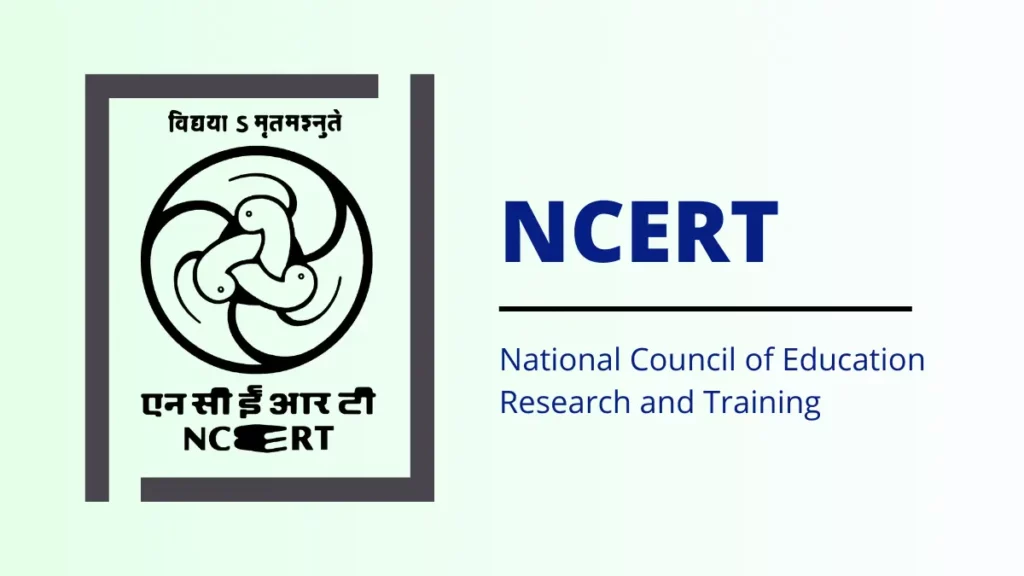NCERT was established in 1961; it is an autonomous body that comes under the Ministry of Education, Government of India. NCERT has played a vital role in providing the Indian education system the shape and guidance that it has today.
The location of its headquarters is at Sri Aurobindo Bagh (New Delhi). It has provided various contributions to our education sector, one of them being its publication of various textbooks across the country which are known for its clarity, conceptual depth, and development of critical thinking among students.
The director of the Council of Education is Dr. Dinesh Prasad Saklani.

History of NCERT
During the early independence period, a need for a national educational organization was felt to facilitate quality education in India. On the recommendation of the Kothari Commission, the organization was formed. Later in 1961, following up on the recommendation of the Kothari council also known as the Education Commission the Indian government formed the National Council of Education, Research and Training.
Registered under the Societies Registration Act of 1860, the council was recognized as an autonomous entity under the Ministry of Education.
In its early era, the council had the responsibility of conducting various research in different areas of education and forming a well-developed module for the classes. The organization mainly focuses on educational reforms and ensures a well-balanced, detailed education for the students.
NCERT’s most important achievement was to provide high-quality education to the students whose school has already adopted the NCERT curriculum. NCERT has done a great job in setting its books as a base platform for Indian schools of education. Many boards across India heavily follow their books.
After emphasizing the crucial role of teachers in shaping students’ minds, NCERT came up with Teacher Training Programs to enhance them professionally and sharpen their pedagogical skills. Various teaching programs help teachers get empowered with the latest teaching methods and make them adapt to the changing educational trends. To innovate multiple new methods of teaching and create a better assessment method, NCERT actively works on its research and development front.
NCERT Objective and Functions
NCERT has varied no. of objectives and functions, primarily conducting research on various aspects of education, developing curricula, and making textbooks.
- Conducting Research on Education: As mentioned earlier, research on diverse aspects of education is considered to be the fundamental objective of NCERT. This area includes various areas incorporating educational psychology, curriculum development, pedagogy, assessment methods, learning theories, etc. With the help of research studies, NCERT’s main aim is to overcome hurdles and make the process of education giving more effective.
- Developing curriculum and framework: From primary to higher secondary levels the NCERT has taken the responsibility of designing and developing detailed curriculum for different stages of schooling. Changing education needs get addressed and acted on accordingly moving forward with holistic development and providing students with necessary life knowledge and skills.
- Providing Inclusive Education: To cater to students with learning needs, NCERT provides an inclusive education by developing resources and material, including differently-abled students.
Education Innovations and Experience: Innovation and research that have the potential to make the teaching and learning process better are highly encouraged by them. Collaborating with schools and educators, they pivot and upscale their innovative practices to integrate effective methodologies into the mainstream. - Promoting Research-based Practices: NCERT gives prominence to research education which encourages the culture of fact-based decision making, and research-based practices get promoted by the organization.
Check out the NCERT Books here.
NCERT Curriculum
Over the years, the National Council made various changes to the curriculum to better facilitate the education system. The curriculum was largely influenced by the British colonial period during the early years. The focus under that curriculum was to provide sufficient education only to be able to meet the needs of a developing nation.
However, during the course of time, the curriculum underwent a manifolds amount of changes and is following the objectives given below:
- They encourage active and meaningful learning experiences.
- Nurturing critical thinking, creativity, and problem-solving skills.
- Promotion values like respect, empathy, and moral ethics.
- Giving information about India’s rich history heritage, and diversity.
- Making students competent with the necessary skills for the changing world.
To sum up, in a simpler manner, the curriculum showcases a positive and progressive learning attitude towards education by developing students’ cognitive, social, and emotional intelligence. And make them well-equipped with knowledge, skills, and values.
Check out the NCERT Solutions here.
NCERT Curriculum for Elementary and Secondary Education
The NCERT curriculum for elementary and secondary education encompasses the following framework.
- Core subjects: The syllabus generally includes core subjects such as Language, mathematics, Environmental studies (Evs), and science. The inclusion of these subjects assures the building of a child’s base or foundation.
- Value Education: Incorporation of value education in the NCERT framework builds value education which makes them have a moral and ethical mindset along with other qualities like honesty, empathy, respect, and responsible citizenship.
- Art and craft: Art and craft is also an integrated part of NCERT’s curriculum, which helps nurture the child’s artistic and fine motor skills.
- Physical Education (PE): The addition of physical education was to encourage students to engage in sports, exercises, and other activities for physical fitness and overall well-being.
- Specialization: After the completion of primary education, this step is made to make the children choose elective subjects based on their interests and the careers they desire. This is a part of the later stages of secondary education. These subjects may include Computer science, Commerce, Arts, or additional science subjects.
- Assessment and board examination: This part of the curriculum is different for primary and secondary students. In the case of primary education, the role of assessment is mainly to focus on continuous and comprehensive evaluation taking in both scholastic and non scholastic aspects of a child’s growth in their account. Whereas, in the case of Secondary education, the assessment becomes more formal with periodic tests and examinations. In some education systems, the respective education boards conduct a special board exam.
NCERT Publications
The textbooks published by the National Council of Education, Research and Training cover a wide range of subjects, including mathematics, Science, social studies, languages, and others.
Provided to students from primary to secondary education. Provided content in the books is based on following the national curriculum of the framework (NCF), which emphasizes a holistic approach to education.
The formulation of the content inside the book is done by master teachers and specialists of their own field who ensure that the content is high-quality and in a simpler format that is easy to understand; the council makes to regularly update the book depending upon the changing world and emerging educational trends.
Leaving textbooks aside, NCERT also publishes supplementary materials, exemplar books, and guides for teachers and other effective content to enhance and make learning accessible and easier.
Another major and widely known fact about the NCERT books is that they come at a very cheap cost which makes them accessible to students belonging to a poor socio-economic background. This is why many education boards and schools across India prefer to recommend and adapt NCERT textbooks.
NCERT Logo

The layout for the NCERT logo was taken from the timeline of the 3rd century BCE from an Ashokan period relic that was taken out in an excavation near Maski in Rachipur district, Karnataka.
The motto of the emblem says “ life eternal through learning” inspired by Isha Upnishad, with twirling swans symbolizing the interjection of their main pillars which are research, development, and training extension.





